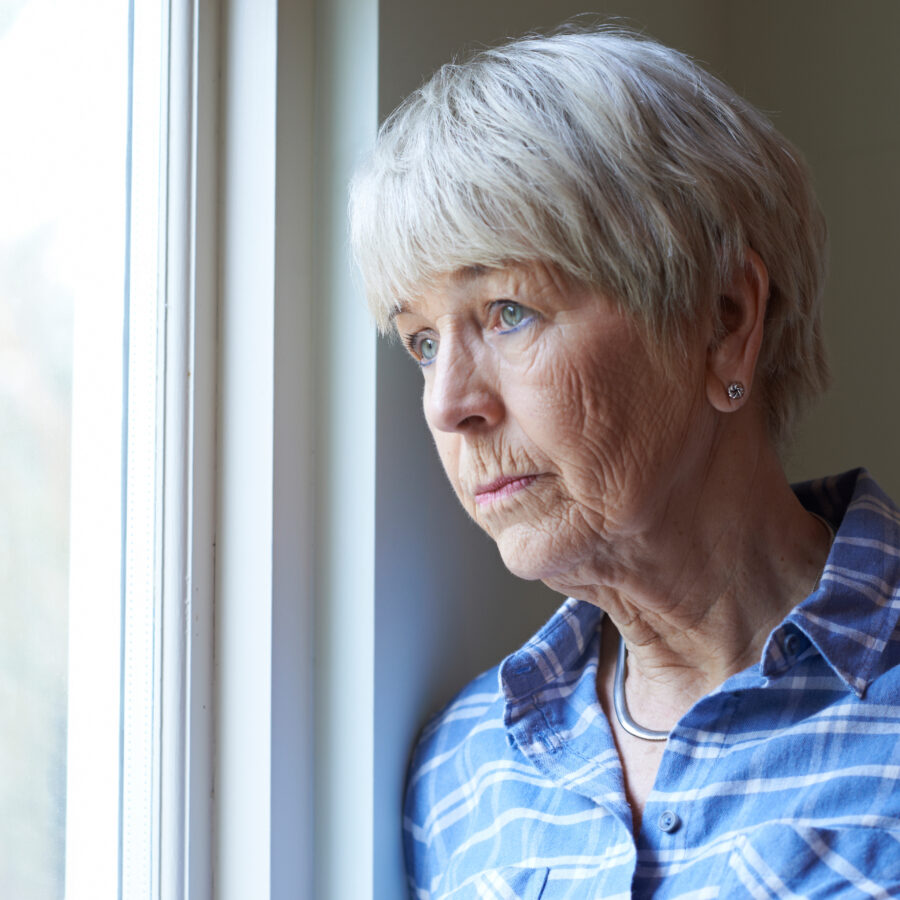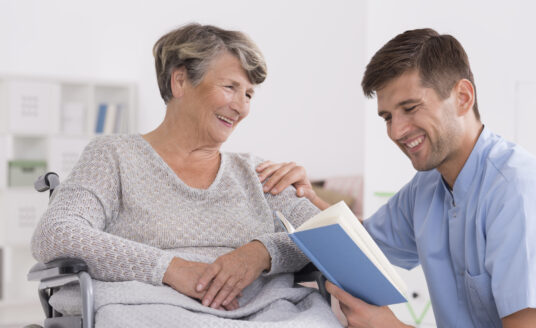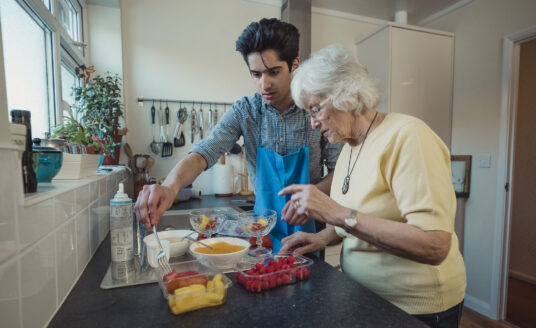Maybe it’s because they’re less agile, find it tougher to secure transportation after giving up driving, or had a traumatic experience outside of the safety of their home. Unfortunately, it’s not unusual for our senior loved ones to develop agoraphobia as they age.
It’s important not to let the phobia, which translates to a fear of the outside world, take root for a variety of reasons, including anti-social behavior, isolation and depression. In addition, allowing one component of our mental health to deteriorate can cause rapid worsening of other issues.
Mom or Dad’s refusal to leave their house can cause them to miss important healthcare appointments as well as family functions and social activities with friends – the types of activities we all look forward to. How do you recognize when your senior loved one is experiencing the extreme anxiety that is brought on by agoraphobia?
Symptoms
If they have these physical symptoms when preparing to leave their residence, it’s time to become concerned:
- Chest pain
- Racing pulse
- Dizziness
- Shaking
- Trouble catching their breath
- Sweating or chills
- Nausea
- Numbness
Sometimes it’s difficult for a younger person to recognize symptoms of agoraphobia in seniors because they can’t relate. A person in the prime of their life might not understand what it’s like to feel weak and vulnerable, or to fear falling because their balance is diminishing. Then there are issues that are painfully real to older adults that they’re often too embarrassed to talk about even to their adult children, like incontinence.
Treatment
While agoraphobia in seniors is a serious issue, the good news is that there are things we can do to potentially address the symptoms and relieve the stress:
- Therapy: Agoraphobia might be a new obstacle for our senior loved ones to confront, but it’s not an uncommon problem. That means there is professional help available. While Mom and Dad might be reluctant to share their fears and concerns with those close to them, they can talk to a counselor in full confidence to help them find solutions to the issues that keep them shut away indoors.
- Taking care of themselves: To maximize their mental health, it’s important first to take care of their physical being. That includes getting enough sleep, eating properly, avoiding alcohol, and moderating the intake of caffeine. According to physicians, people who take control of their physical health feel more control and empowerment when it comes to managing their mental health.
- Learning calming skills: Meditation, yoga, and breathing and visualization exercises are all techniques that can help our senior loved ones to soothe themselves when the panic of agoraphobia starts to emerge. A major trigger of the phobia is the fear of what might occur when they’re out in public. By giving them calming tools to control the outcome of the situation, it gives them the power to cope.
- Medication: Pharmaceuticals prescribed to control anxiety attacks are proven to be effective in combatting agoraphobia in seniors. Encourage your senior loved ones to talk to their primary care physicians about what options they would recommend.
- Exposure therapy: Once our seniors have developed some coping skills, small and comfortable steps are the best way to get their comfort level back when they’re out of their home. Take them to places for a short period of time with the goal of making it a little longer each time. As they implement their calming techniques, they’ll begin to gain confidence in their ability to navigate the situation.
- Be supportive: Agoraphobia is cruel in that it makes our senior loved ones isolate themselves from people and things they love and need. It’s important to let them know that you’re there to help them and you want to see them get better. The first step of any journey is usually the first one. So, give them a helping hand by guiding them in the direction of wellness.
For more ways to help support aging parents, visit Bethesda’s Health & Wellness blog.
Want to find out more?
If you’d like to stay up to date with Bethesda Health Group, sign up here to receive our blog and newsletters!
"*" indicates required fields
Related Articles
Want to find out more?
If you’d like to stay up to date with Bethesda Health Group, sign up here to receive our blog and newsletters!
"*" indicates required fields



